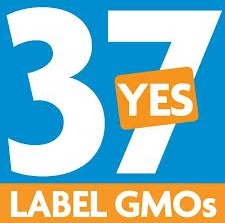The California Right to Know Genetically Engineered Food Act (Prop. 37) looks to add new labeling requirements to food retailers and producers that sell food products containing Genetically Modified Organisms (GMOs). GMOs, or biotechnology foods, are plants and animals that have features scientifically-engineered in order to ensure a higher yield.
The main goal of Prop. 37 is to provide notice to consumers which, in time, could potentially reduce the use of pesticides and other environmentally-harmful practices associated with GMOs. Along with the U.S. Green Chamber, other supporters of Prop. 37 include the American Public Health Association, United Farm Workers, and Center for Food Safety. Green Chamber supports Prop. 37 because it furthers environmentally sustainable business practices and consumer awareness. Green Chamber expects Prop. 37 will make GMO producers more accountable and focused on lessening the negative environmental implications involved with manufacturing GMO products in California.
GMOs are dangerous to the environment because GMO cultivation can inadvertently contaminate neighboring organic crops and damage the ecosystems where toxicants are used. One of the most common examples of GMOs is crops that are herbicide resistant. Herbicide resistant modification is widely used because it allows farmers to kill weeds without harming crops. However, farmers have used so much herbicide that some weeds adapted an herbicide resistance. Herbicide resistant weeds force GMO croppers to use herbicides that are more toxic and harmful to the land. In addition, because GMO crops are given unnatural advantages, they are hard for farmers to contain or exclude. Thus, contamination is an issue because GMO crops spread to organic farms that use no pesticides at all, tainting those crops.
Yes on Prop. 37 means, within 18 months, companies are prohibited from claiming products are “natural” if the product contains GMOs. Additionally, food products containing a significant amount of GMOs must be labeled, “Genetically-engineered” or “May be Partially Produced with Genetic Engineering”. If a food product containing GMOs were improperly labeled, then that product would be taken off of store shelves. Yes on Prop. 37 also means companies selling GMO products would have to keep better records of those products. This would allow health organizations to track GMO consumption and gain a better sense of the health risks associated with biotech foods. Prop. 37 exempts restaurants, certified organic, and other foods already regulated by governments agencies such as the Food and Drug Administration.
No on Prop. 37 means that California consumers would continue eating and supporting GMO food products without their knowledge. Major opponents of Prop. 37, including Coca-Cola, claim that increased labeling would only result in increased food costs to California families and is unnecessary because GMOs are safe for humans to eat. However, many of these health studies are paid for by GMO producers, like Monsanto, a company that recently became a large producer of corn-based animal feed. Other studies claim food producers would see their costs increase about $300-$800 million by relabeling and documenting all products containing GMOs (about 100,000). Under these estimations, additional administrative costs to GMO producers would lead to an annual $350-$400 increase in an average California family’s grocery expenses. In all likelihood, the costs to the producers and consumers would be very minimal since the 18-month phase in period allows most GMO producers to make the changes as part of their regularly scheduled label updates.
To learn more about Prop. 37 and the other Propositions on this November’s ballot, visit http://www.voterguide.sos.ca.gov/.







